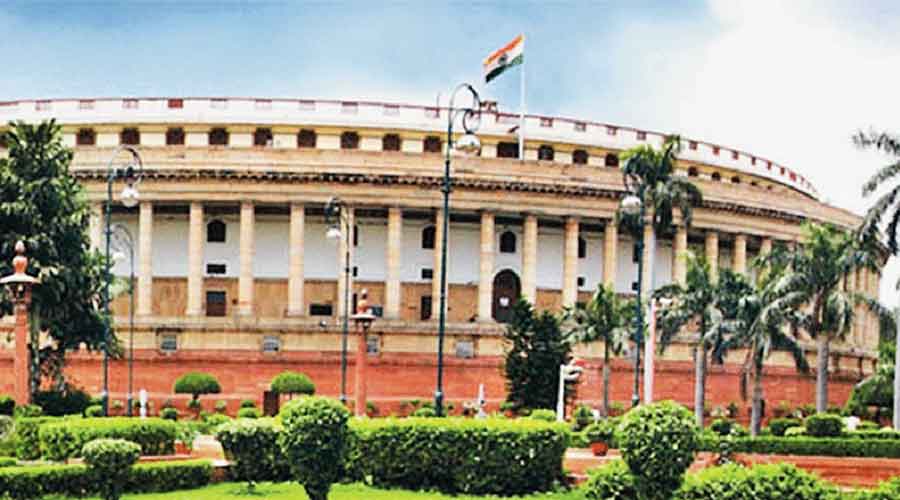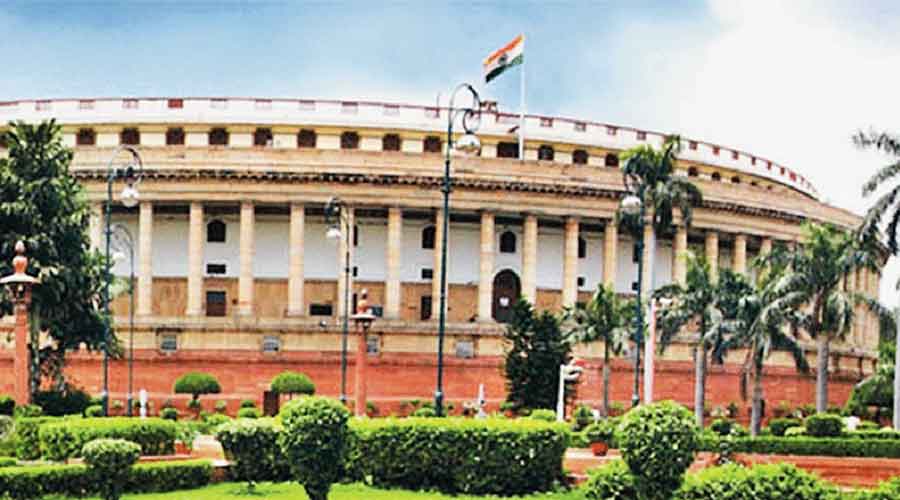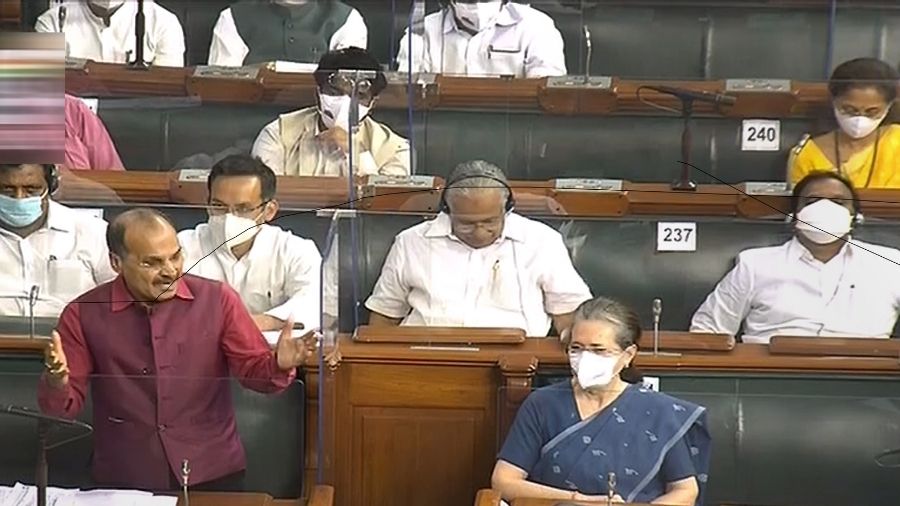The Opposition on Tuesday suspended its relentless protest in the Lok Sabha to press for a discussion on Pegasus snooping charges, to participate and support a constitutional amendment bill concerning the politically and electorally significant Other Backward Classes.
The Constitution (One Hundred and Twenty-seventh Amendment) Bill, 2021, aimed to restore the rights to states to maintain their own OBC lists for reservation in government jobs and educational institutions, was passed unanimously by the Lok Sabha, underscoring the political significance of the legislation. The result of the voting was 385 ayes and zero nos, meaning no member opposed or abstained.
For the first time in the last week of the four-week monsoon session, the Lok Sabha saw a structured and long debate on a bill, with each side seeking to underline their commitment for the OBCs, who approximately constitute more than half of the country’s population. The Opposition protested during the Question Hour and forced one adjournment but returned to their seats when the bill was taken up post-noon.
The shadow of Pegasus and the farm laws, however, couldn’t escape as some Opposition leaders while speaking over the OBC bill, sought to question the government’s bid to run away from a debate on the snooping charges.
Participating in the debate, leader of the Congress in the Lok Sabha, Adhir Chowdhury, said they had decided to participate and support the bill as a “responsible party” since it was a constitutional amendment that requires support of two-thirds members of the House.
Then he went on to flag Pegasus and justify the Opposition’s protest to demand a discussion on the snooping charges, inviting protest from the ruling benches.
“We are being blamed for stalling the House,” he said. “Israel, Hungary, France and other countries are probing Pegasus snooping.… What are we doing here?” he asked.
“But here, we are scared to even have a discussion in the House on Pegasus. Why so?” Adhir said leading to some uproar and Speaker Om Birla asking him to stick to speaking over the bill.
After Adhir, Trinamul Congress’s Sudip Bandopadhyay too raised the issue and also sought to take digs at the central government over its claim of “cooperative federalism” in the OBC bill.
“I cannot get any idea why the government is scared to discuss Pegasus,” Sudip said.
He pointed out that the way the Opposition had agreed to discuss and pass the OBC bill, the government should be ready to discuss Pegasus. He proposed the debate should take place on Wednesday.
Amid protests by ruling BJP members, Sudip said that 30 bills have been “bulldozed” and passed in both Houses at an average of 10 minutes per bill.
After being urged by the Chair to speak on the OBC bill, Sudip said it says that the amendment is being done to “save the federal structure of the country” and then took swipe at the government.
“The federal structure is totally under threat today.… Our (state’s) voice shouldn’t be gagged... parliamentary democratic process should be allowed to function properly. Government of India should function on its own and state governments should be allowed to function on their own,” he said.













